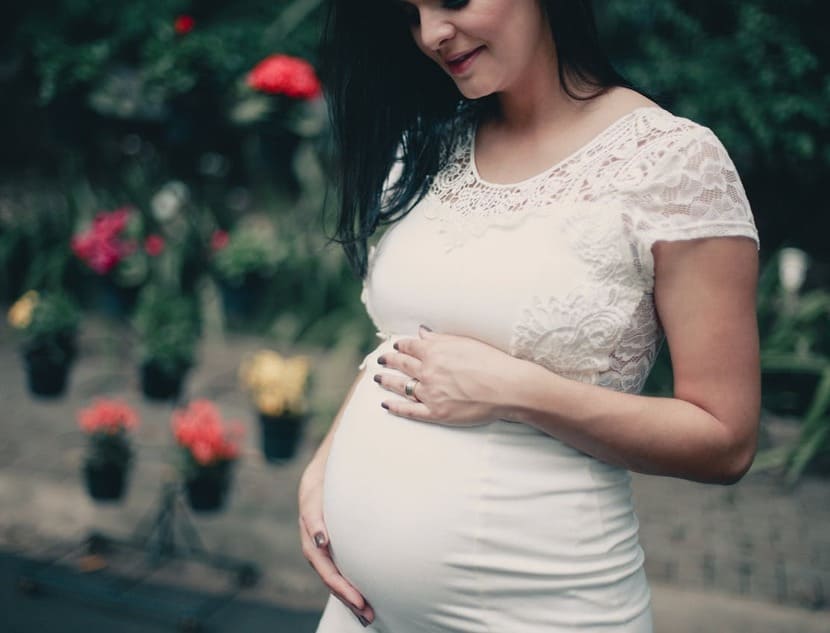Pregnancy brings excitement and responsibility. The choices an expectant mother makes directly impact both her health and her developing baby’s wellbeing. Ensuring the health of both mother and baby requires mindful choices, particularly about avoiding certain foods, substances, and behaviors. Drawing from trusted sources like UNICEF’s recommendations, this guide outlines risks to avoid during these nine months to reduce risks and contribute to a healthier pregnancy outcome.

Why Pregnancy Safety Matters
During pregnancy, the placenta allows nutrients and oxygen to reach the baby, but it can also transmit harmful substances. What you eat, drink, or expose yourself to can directly impact fetal development. Avoiding specific hazards reduces the risk of birth defects, preterm birth, and lifelong health challenges for your child. Being informed about these risks helps you make safer choices throughout your pregnancy.
Substances to Avoid During Pregnancy
Alcohol: Zero Is the Only Safe Amount
Despite persistent myths suggesting that small amounts of alcohol might be acceptable during pregnancy, medical experts universally agree: no amount of alcohol is safe during pregnancy. When you consume alcohol, it passes directly through the placenta to your baby, who cannot process it as efficiently as you can.
Alcohol consumption during pregnancy can lead to a range of issues collectively known as Fetal Alcohol Spectrum Disorders (FASDs), including:
- Physical abnormalities
- Learning disabilities
- Behavioral problems
- Intellectual disabilities
- Problems with vision or hearing
- Heart, kidney, or bone problems
Even small amounts of alcohol, particularly during critical developmental periods, may affect your baby’s brain development. The safest approach is complete abstinence from alcohol throughout your entire pregnancy.
Tobacco: A Dangerous Habit for Two
Smoking during pregnancy exposes your developing baby to thousands of harmful chemicals. These toxins reduce oxygen supply to your baby and interfere with healthy development. The consequences of smoking while pregnant include:
- Increased risk of miscarriage and stillbirth
- Premature birth
- Low birth weight
- Birth defects like cleft lip or palate
- Sudden Infant Death Syndrome (SIDS)
- Respiratory issues after birth
- Learning and behavioral problems later in life
Secondhand smoke exposure presents similar dangers, so it is important to maintain a smoke-free environment throughout your pregnancy. If you are struggling to quit, speak with your healthcare provider about cessation strategies specifically designed for pregnant women.
Drugs: Prescription, Over-the-Counter, and Illicit
Substance use during pregnancy requires careful consideration:
Illicit drugs (including marijuana, cocaine, heroin, methamphetamine) can cause serious birth defects, premature birth, low birth weight, and withdrawal symptoms in newborns. These substances should be strictly avoided.
Prescription medications should only be taken under medical supervision. Some medications are known to cause birth defects or other problems, while others may be safe. Never discontinue prescription medication without consulting your healthcare provider first.
Over-the-counter medications may seem harmless but can pose risks during pregnancy. Common pain relievers like ibuprofen might affect your baby’s cardiovascular system, while certain cold medications could impact development.
Always consult with your healthcare provider before taking any medication during pregnancy.
Foods and Beverages to Avoid During Pregnancy
Raw or Undercooked Foods: Hidden Dangers
Pregnancy temporarily alters your immune system, making you more susceptible to foodborne illnesses that could harm both you and your baby. Foods to avoid include:
- Raw or undercooked meat, poultry, and seafood: These may contain harmful bacteria like Salmonella, E. coli, or Listeria, as well as parasites.
- Raw eggs or foods containing raw eggs: This includes homemade mayonnaise, hollandaise sauce, and some desserts like mousses and tiramisu.
- Unpasteurized dairy products: Raw milk and cheeses made from unpasteurized milk may contain Listeria, a bacteria particularly dangerous during pregnancy.
- Unwashed fruits and vegetables: These can harbor parasites and bacteria. Always thoroughly wash produce before consumption.
Proper food handling and cooking temperatures become especially important during pregnancy to minimize these risks.
Fish: Balancing Benefits with Mercury Concerns
Fish provides excellent nutrition, including omega-3 fatty acids important for your baby’s brain development. However, some fish contain high levels of mercury, which can damage your baby’s developing nervous system. Guidelines to follow include:
- Avoid high-mercury fish completely, including shark, swordfish, king mackerel, and tilefish.
- Limit consumption of medium-mercury fish like tuna to no more than 6 ounces per week.
- Choose low-mercury options like salmon, shrimp, catfish, and canned light tuna for healthier seafood choices.
Most experts recommend consuming 8-12 ounces of low-mercury fish weekly for optimal pregnancy nutrition.
Caffeine: Moderation Is Key
While you do not need to eliminate caffeine entirely, moderation is important during pregnancy. High caffeine intake has been associated with:
- Increased risk of miscarriage
- Low birth weight
- Preterm birth
Most healthcare providers recommend limiting caffeine to 200mg daily (approximately 1/2 cups of coffee per day). Remember that caffeine is found not only in coffee but also in tea, chocolate, some sodas, and certain medications.

Environmental Hazards to Avoid
Chemicals and Toxins: Hidden Threats
Your everyday environment may contain substances that could affect your baby’s development:
- Household cleaning products with strong chemicals should be used in well-ventilated areas or replaced with pregnancy-safe alternatives.
- Paint fumes, particularly from oil-based paints, should be avoided, especially during the first trimester.
- Pesticides and herbicides have been linked to birth defects and developmental issues. Limit exposure to these chemicals during pregnancy.
- Lead exposure from old paint, certain water pipes, or some occupational settings can cause serious developmental problems.
- Mercury from broken thermometers or fluorescent light bulbs should be cleaned up by someone else if possible.
When using any chemical products, always read labels, follow safety instructions, and ensure proper ventilation.
Hot Tubs and Saunas: Temperature Concerns
Activities that significantly raise your body temperature, particularly during the first trimester, may increase risks to your baby. High body temperatures have been associated with neural tube defects and miscarriage. Avoid:
- Hot tubs and whirlpools (particularly those set above 100°F)
- Saunas and steam rooms
- Very hot baths that raise your body temperature significantly
A good rule of thumb: if it makes you sweat profusely or feels uncomfortably hot, it is best avoided during pregnancy.
Lifestyle Factors to Reconsider
Exercise: Adapting Your Routine
While regular physical activity benefits most pregnant women, certain exercises become riskier during pregnancy:
- Contact sports that risk abdominal trauma (basketball, soccer, hockey)
- Activities with high fall risk (horseback riding, skiing, gymnastics)
- Scuba diving, which can create gas bubbles in your baby’s bloodstream
- Exercises performed lying flat on your back after the first trimester, as they can restrict blood flow
Consult with your healthcare provider about appropriate exercise modifications throughout your pregnancy.
Read about Health Benefits of Daily Physical Activity during Pregnancy
Stress: The Hidden Hazard
While impossible to eliminate entirely, chronic high stress levels during pregnancy have been linked to:
- Preterm birth
- Low birth weight
- Developmental issues
- Behavioral problems in childhood
Prioritize stress management through techniques like:
- Gentle exercise like prenatal yoga
- Adequate rest and sleep
- Meditation and deep breathing
- Building a support network
- Setting realistic expectations
Medical Considerations During Pregnancy
X-rays and Certain Medical Procedures
Some medical procedures require special consideration during pregnancy:
- X-rays, particularly of the abdomen or pelvis, should be avoided unless absolutely necessary
- CT scans involve higher radiation doses and should only be performed if benefits outweigh risks
- MRIs are generally considered safe but are typically performed only when necessary
- Dental X-rays can usually be postponed, but if necessary, proper abdominal shielding should be used
Always inform all healthcare providers, including dentists, about your pregnancy before undergoing any procedure.
Vaccines: Knowing What Is Safe
Some vaccines are recommended during pregnancy, while others should be avoided:
- Recommended vaccines include the flu shot and Tdap (tetanus, diphtheria, pertussis)
- Live vaccines like MMR (measles, mumps, rubella) and chickenpox are generally avoided during pregnancy
Your healthcare provider can provide personalized guidance regarding vaccinations during your pregnancy.
Building Your Pregnancy Safety Plan
Creating a pregnancy safety plan involves:
- Regular prenatal care to monitor your health and your baby’s development
- Open communication with healthcare providers about all medications, supplements, and health concerns
- Education about pregnancy safety from reliable sources
- Support system engagement to help maintain healthy habits
- Preparation of your home and work environments to minimize exposure to harmful substances
Hydrate: Drink 8–10 glasses of water daily
Sleep: Aim for 7–9 hours/night
Remember that pregnancy safety guidelines evolve as new research emerges. Stay informed through reputable sources and regular consultation with your healthcare provider.
FAQs
Q: Can I dye my hair during pregnancy? A: Most studies suggest hair dyes are safe after the first trimester, but opt for ammonia-free products.
Q: Is it safe to travel by air? A: Generally safe until 36 weeks, but consult your doctor and stay hydrated.
Q: Can I eat spicy food? A: Yes, unless it triggers heartburn or discomfort.

Pregnancy is a relatively brief period in your life that can have lasting impacts on your child’s future. While the list of precautions might seem overwhelming, focusing on these safety measures creates the best possible environment for your developing baby. Each healthy choice you make contributes significantly to giving your child the strongest start possible.
By understanding what to avoid during pregnancy and why these precautions matter, you can make informed decisions that protect both your health and your baby’s development. Remember that perfect adherence is not always possible, but awareness and consistent effort make a meaningful difference in pregnancy outcomes.